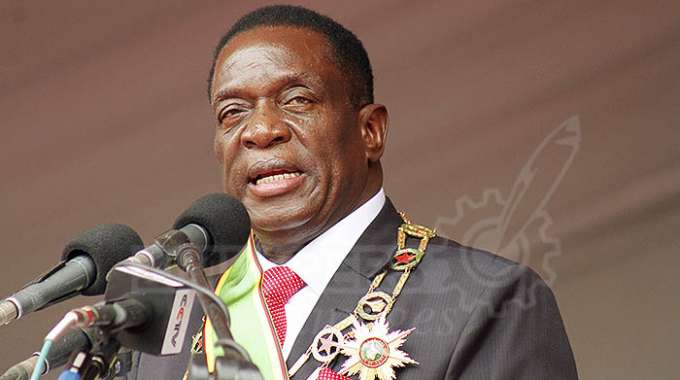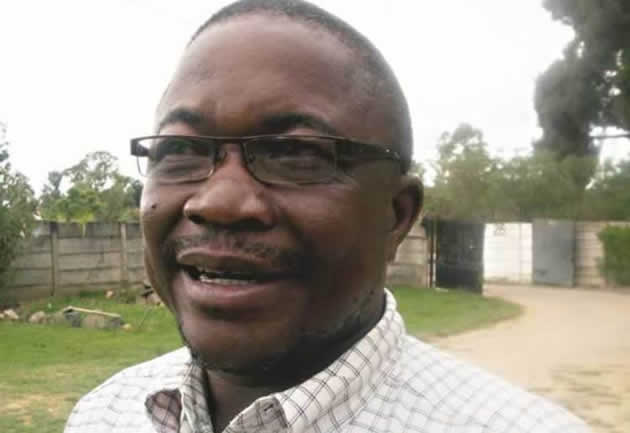Re-engagement a critical plinth for Zim

Isdore Guvamombe Assistant Editor
PRESIDENT Mnangagwa has since his ascension to power in November last year, exuded much energy and resilience in seeing through his vision to transform Zimbabwe and make it great again.
Suffice to say, the people of Zimbabwe and the international community expect a lot from him especially after a long hiatus to the point where some people are expecting impossibilities such as changing everything overnight. Understandably, after deprivation people expect too much. They grow impatient and can’t wait! They are seeing salvation.
My solace is that the President is not a novice in politics, governance and statecraft, having known no other job his entire life. It is critical therefore to give him the chance to implement his vision. Change is a process, a thought process with many dynamics and many technicalities. But practically there are glitches too.
President Mnangagwa’s administration has gone on a trailblazing re-engagement path. It is massive, given the interest the new administration has attracted internationally. Re-engagement is a critical plinth to fling Zimbabwe into its correct position in the global village.
Zimbabwe has vast untapped natural resources and fertile land. Zimbabwe has good climate. Zimbabwe has a plethora of man-made tourist attractions and those sired by nature. In short, Zimbabwe is a sea of investment opportunities and all this can change the fortunes of its people by attracting Foreign Direct Investment.
In the few months, President Mnangagwa has been able to change the indigenisation law and left the 51-49 rule applying to diamond and platinum mining only; he has given the last standing white commercial farmers 99-year leases from previous 5-year leases. He has signed into law the National Peace and Reconciliation Commission Act. The police that over-manned our roads are no longer there, among many things.
The new administration has brought in a new era, a new thinking and a buffet of opportunities for all and sundry by removing many policies that had become the country’s stumbling blocks.
In times like these, when Zimbabwe is a centre of attraction many countries and multilateral companies will seek to sneak in their own agendas, taking advantage of the situation. There is need to remain vigilant, while at the same time, giving space for those who want to engage with Zimbabwe. The re-engagement process must be constructive, well-meaning and adding value to the future prospects of Zimbabwe.
While Zimbabwe is overwhelmed with the re-engagements, we should keep an eye on those sneaking agendas that will smash and destroy the whole essence of re-engagement.
For example, in his inauguration speech, the President made it clear that there was need to lift sanctions imposed by the West on Zimbabwe. In line with goodwill and constructive re-engagement, there is no longer justification for the sanctions.
Britain, which was the main actor in a bilateral stand-off over Zimbabwe’s land reform programme, is exiting the European Union. Since all the EU countries that had imposed sanctions on Zimbabwe did so on behest of their colleague (Britain), what justification does the EU have now to continue with sanctions when the bereaved Britain is no longer in its league? Is it not akin to an outsider mourning more than the bereaved?
Since the swearing in of President Mnangagwa, Britain has made tremendous efforts to show its willingness to make things work with Zimbabwe, but one might have noticed that the United States of America, which latched on to the bilateral conflict between Zimbabwe and Britain, as a friend of Britain, but later overtook Britain to claim the biggest chuck of bereavement, has not really owned up.
It should be remembered that the US in particular, crafted a specific legal instrument, the Zimbabwe Democracy and Economic Recovery Act in 2001. To date, President Mnangagwa is still under US sanctions. The Zimbabwe Defence Industry is also still under sanctions.
It is not suspicion, but reality that the US still stands by those who oppose Zanu-PF, regardless of the change of guard and subsequent change of policies. It seems to be part of the US DNA to oppose Zanu-PF, no matter what good it does. However, Zimbabwe is extending an olive branch to the US.
The new dispensation is not naive to think that it is wanted by everyone. Part of the US re-engagement strategy is to find a way of penetrating the current Zanu-PF establishment and destroy it. It is to revive MDC and make it the future of Zimbabwe, under a cocktail of measures disguised as democracy, good governance, accountability, human rights and so forth.
Your long time enemy cannot suddenly be your friend, that should be the message for Zanu-PF. It would be folly to ignore the US’s attitude towards a Zanu-PF Government and as Zimbabwe goes to the first election under President Mnangagwa, the world will see how US tactics play.
Interesting enough, a US invitation to host the MDC Alliance functionaries in Washington coincided with the swearing-in of President Mnangagwa and that on its own, is telling of what diplomacy the US is playing. Many examples exist, which show that the US is not interested in a win-win situation in its policies, but it would want an outright win for itself.
In fact, it could be too early to talk about US-Harare deals because their attitude depends on President Mnangagwa holding and winning what they deem free and fair elections, first. Most likely they will look for loopholes again to justify their support for the opposition.
Even when you look at the US extension of humanitarian aid in Zimbabwe, it is used to influence, through NGOS, the outcome of the elections in favour of the opposition. But all well-meaning Zimbabweans are aware that President Mnangagwa has the depth of character and the wisdom to deal with deceptive re-engagement.
Every sane person wants things to happen for Zimbabwe. Zimbabweans are expecting a lot from their leaders. Civil servants want improvements of their working conditions, parents want better education for their children, industries need to be revived through massive investment in re-tooling. New investors are required. Investments to attract foreign currency are needed sooner than later. This sums up the economic turnaround of Zimbabwe.
There is no doubt that given the chance, the new political dispensation can deliver and make Zimbabwe great. What is needed is not blind re-engagement. History is a great teacher. It teaches us to remember that not all those who smile at us like us.
Let us give President Mnangagwa and his team time to rebuild Zimbabwe and make it great again. Let us support them. They need the support of all and sundry.








Comments